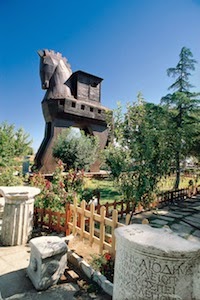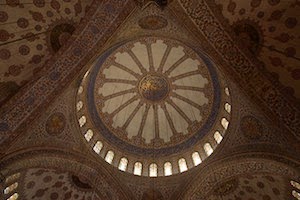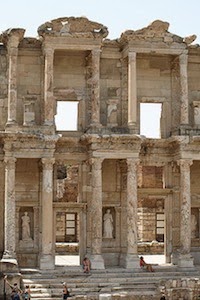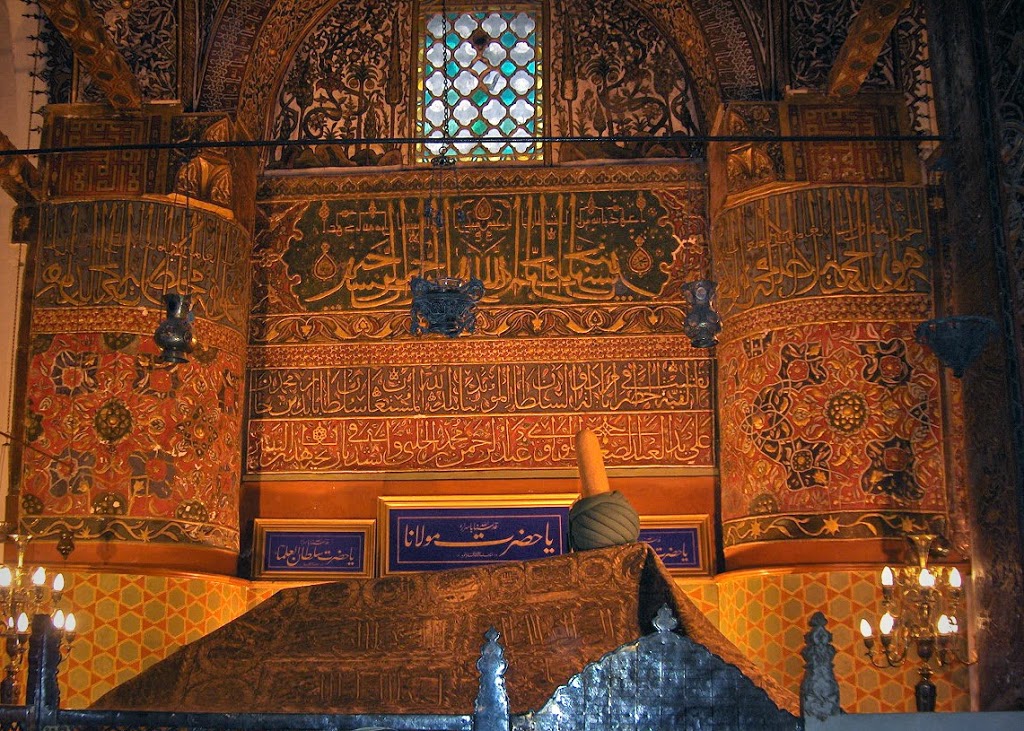Phil Cousineau: Turkey is the great crossroads between East and West, a place like no other. There is a distinct Oriental flavor to Istanbul and also all over Eastern Turkey. Western Turkey is ancient Anatolia, essentially Eastern Greece for centuries. Sites like Hisarlik, ancient Troy, are crucial for understanding the very roots of Western civilization, art, drama, even opera. Besides the food is fresh, affordable, plentiful, and Turkey, especially in the fall when we will be there, will be among the least crowded corners in Europe.
PC: The Blue Mosque in Istanbul, Troy, which I read about as a boy, Ephesus, the most intact ancient city, thanks to the German archaeologists, the ports along the south, Catal Huyuk, the ruins of the oldest known city, and Konya, where we will visit the tomb of the Shakespeare of the East, as Mevlana Rumi is known.
KB: What can participants expect from this journey to Turkey that they wouldn’t find elsewhere?
PC: Time, contemplation, local speakers, friends for a lifetime.
KB: Sufism and Rumi also strongly feature in this journey: Do participants need any prior knowledge of the works of Rumi or of Sufism? Will those who are very new to Turkish culture find this journey “accessible”?
PC: I highly recommend that our participants read some Rumi before they leave, or see a documentary film about him. Not doing so would be like going to England and not knowing a thing about Shakespeare. Rumi is omnipresent in Turkey, his face on the money, his presence in music, on the stage, in movies, and he is a huge source of pride to those who live there. It’s a gesture of respect.
KB: Is there anything else you would like to tell me about this journey to Turkey?
PC: Remember what Rumi wrote 750 years ago: “What you seek is seeking you.” In some mysterious way these great lands and cultures are seeking travelers like you to make them come alive again.
Read more about this enticing journey to Turkey with Phil Cousineau and Sacred Earth Journeys here.
~ Kim Bridgett







